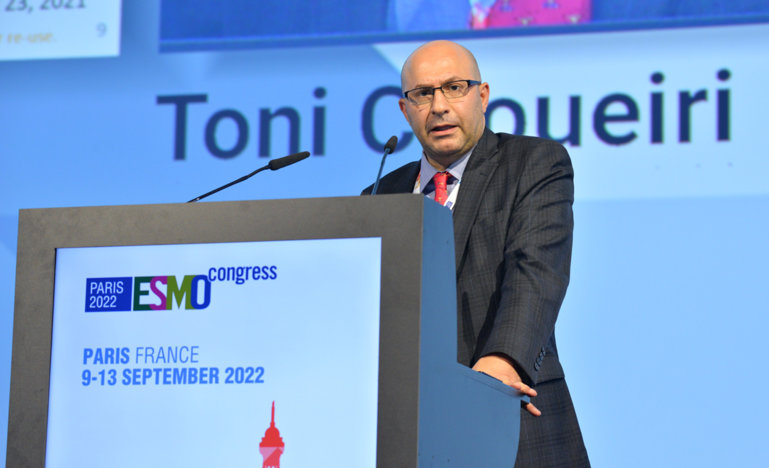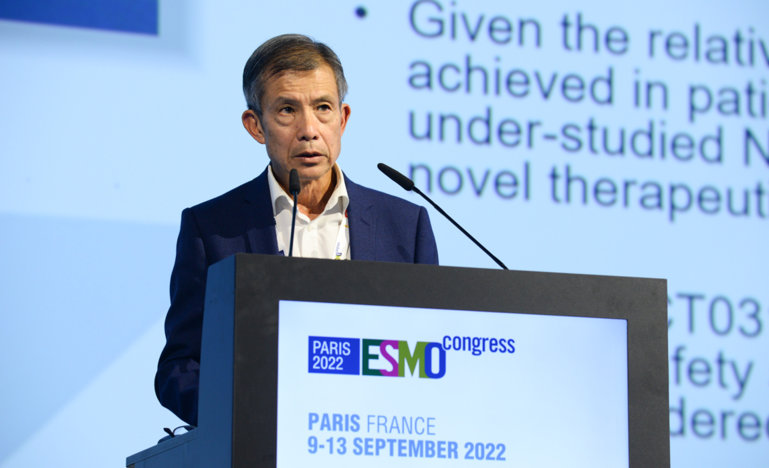ESMO Congress 2022

Prostate cancer: data support adding ADT for patients undergoing post-operative radiotherapy
Results from the RADICALS-HD and PRESTO trials show encouraging metastasis-free and biochemical progression-free survival benefits with androgen deprivation therapy, but they are not practice-changing yet

First-line triplet of TKI plus dual immunotherapy improves outcomes in renal cell carcinoma
Results from the COSMIC-313 trial show that adding cabozantinib to nivolumab plus ipilimumab prolongs progression-free survival, but also increases toxicity

Sotorasib improves PFS versus docetaxel in patients with pre-treated KRAS G12C-mutated NSCLC
Results from the CodeBreaK 200 trial represent an improvement for a difficult-to-treat patient population

Could anti-PD-L1 be the best choice as front-line therapy in platinum-ineligible patients with NSCLC?
Findings show overall survival benefits with front-line atezolizumab versus single-agent chemotherapy, but questions remain regarding who might benefit

Antibody–drug conjugates show potential in advanced solid tumours
Study data report promising responses and safety profiles in patients with heavily pre-treated malignancies

The first randomised study of peptide receptor radionuclide therapy in pancreatic NETs met its primary endpoint
In the OCLURANDOM trial, progression-free survival was longer in patients receiving lutetium-octreotate versus sunitinib

NECs: mixed results for second-line therapy after progression
The optimal chemotherapy regimen in this setting is not well-defined

Can new routes of administration have a place in the application of immunotherapy?
Immunotherapy typically requires intravenous administration, but this may not be the optimal or preferred route for all patients

Nivolumab shows encouraging efficacy in high-risk patients with precancerous oral lesions
Results of a small phase II trial may open up a new option for some patients with leukoplakia, but toxicity of immunotherapy is high and questions remain about its utility in clinical practice

Potential new treatment options for metastatic colorectal cancer emerge from two studies
Encouraging clinical activity was reported for fruquintinib and the combination therapy of trastuzumab plus tucatinib in heavily pre-treated patients with manageable safety profiles


